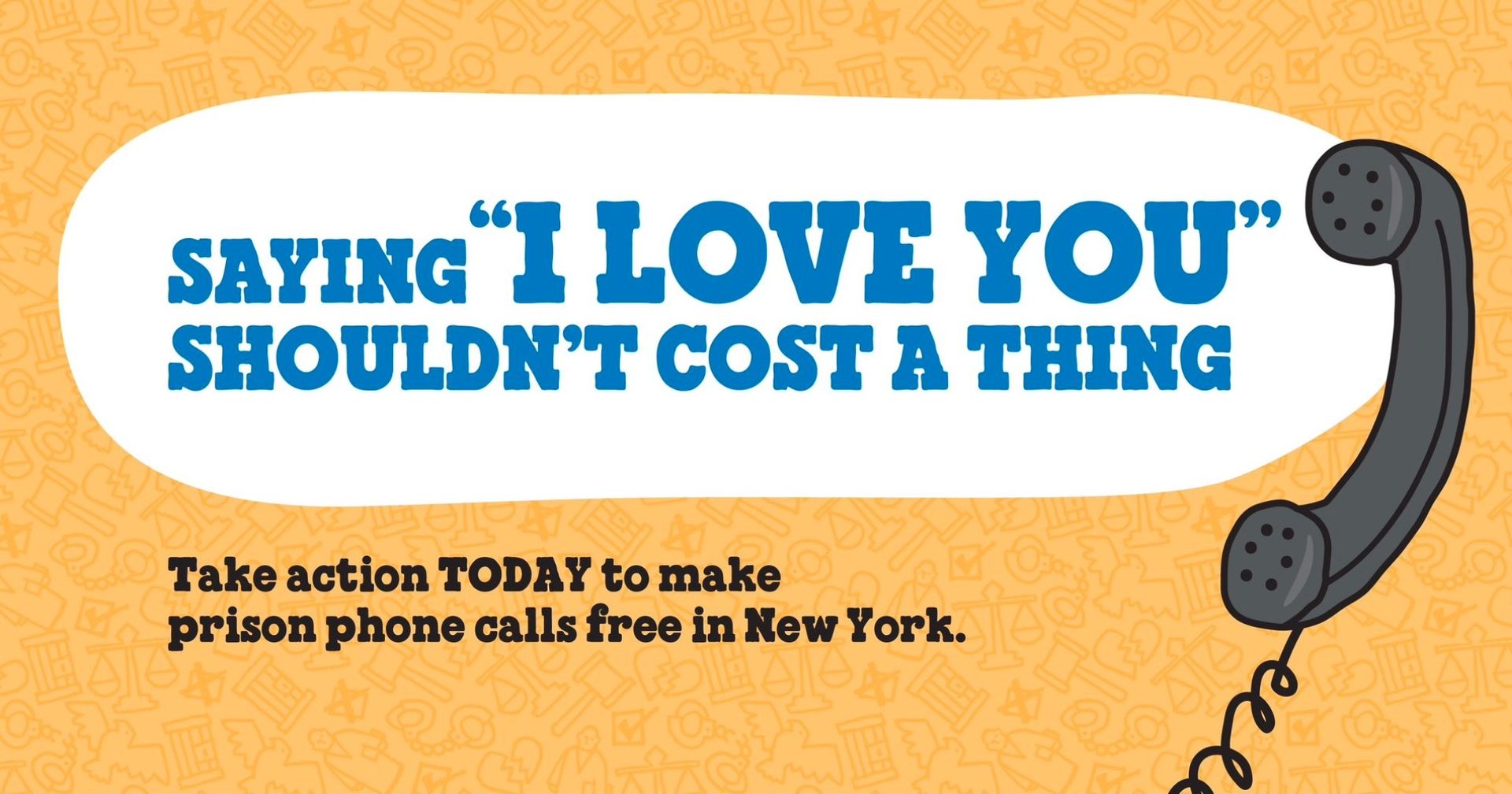ACTION ALERT - New Yorkers Advocate for Free Prison Calls
New York could soon become the sixth US state to make prison calls free

New York State families spend over $20 million annually on calls to prisons. Over 50% of these families, who are disproportionately Black, brown, and low-income, already struggle to meet basic housing and food needs. These added communication costs disproportionately burden the women who make up 87% of those paying them.
This exploitation is not just separating families, including children from their parents, but negatively impacting correctional staff and public safety. Incarcerated people who are in contact with their community are more likely to have hope, participate in rehabilitative programs, engage in positive behaviors while inside, and reenter society successfully upon release. Making communication free is the most cost-effective, evidence-based program a prison or jail could institute.
In recent years, legislative efforts to make prison calls free have stalled. This year's legislation, Senate Bill 1942 and Assembly Bill 2164, introduced by Senator Jamaal Bailey (D36 - The Bronx) and Assemblymember Harvey Epstein (D74 - Manhattan), would make all communication, including calls and electronic messages, free across New York state prisons for over 30,000 incarcerated people and their families. The Assembly included a $9.9 million allocation for the bill in its one-house budget and the Senate included the bill’s policy language in the budget it finally sent to Governor Kathy Hochul.
“New York families spend millions annually to stay connected to their incarcerated loved ones,” said Senator Bailey. “It's a staggering cost that often puts support out of reach for incarcerated individuals and financially strains families, many who are already struggling to make ends meet. Making prison phone calls free is not only critical for true rehabilitation but strengthening the support systems that make successful reentry possible. For families facing incarceration, communication provides parents, spouses, and children a sense of stability and comfort that is essential. I am proud to sponsor this legislation with Assemblymember Epstein to invest in a truly rehabilitative system, a path to reentry, and safer communities.”
If the bills pass, New York would become the next and sixth state to make prison calls free, following quickly on the heels of Massachusetts, Minnesota, and Colorado, which passed similar legislation in 2023. California passed legislation to the same end in 2022 and Connecticut in 2021.
“The women who pay for prison calls and families separated by their costs should not have to go another day worrying about how they’ll make ends meet just to afford these critical calls. For too long New York has been dragging its feet on this policy, driving some of the most impoverished women and families further into financial instability,” said Bianca Tylek, Executive Director of
Worth Rises, a non-profit organization dedicated to dismantling the prison industrial complex. “Five other states have bypassed New York at this point and already passed legislation to make prison communication free. We must be next. We’re grateful to the legislators who are championing this cause and hope that New York’s political leadership will finally do the right thing.”
NEW YORK VOTERS - Please take action now to ensure free prison communication makes it into the final budget. Use this link and one-click to send an email and Tweet at your state elected officials to protect families and promote public safety by making prison and jail communication free in New York --->> Help connect New York families with incarcerated loved ones!
If you're in a state where telecommunication companies are still engaged in the prison communication racket at the expense of families, visit this link to check the status of any legislation in your state to make prison calls free, and what you can do to help get that legislation passed --->> Free jail and prison phone calls










